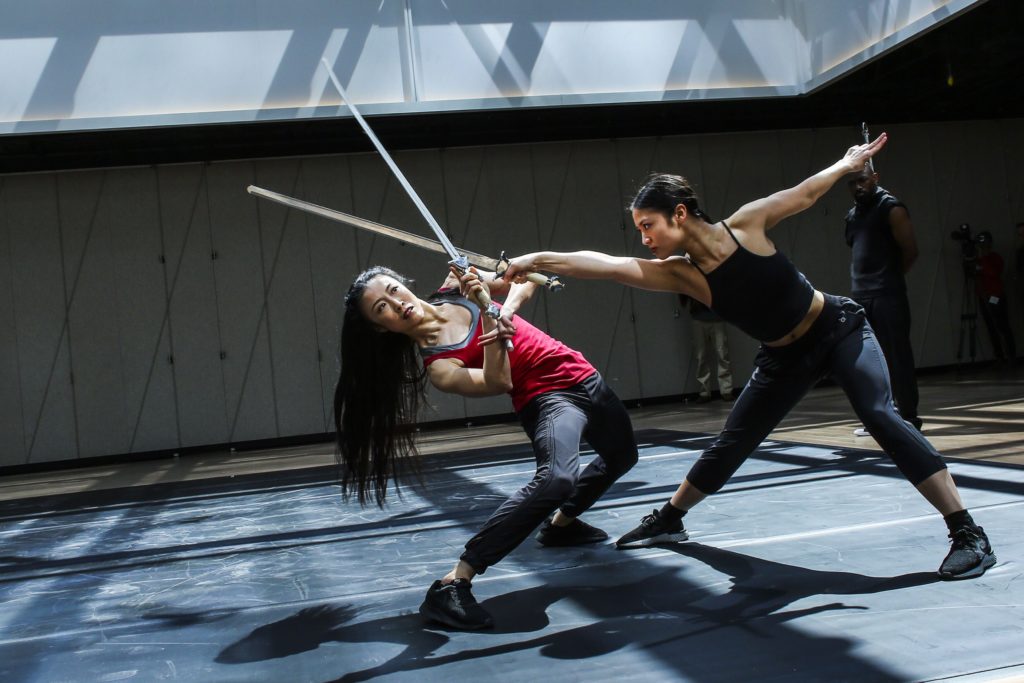Asian American advocacy groups are accusing the Shed of promoting racial stereotypes in its new “kung fu musical,” Dragon Spring Phoenix Rise. The production follows a twin brother and sister who uncover a secret group in Queens that has developed the power to extend human life. It was directed by Chen Shi-Zheng and co-written by Kung Fu Panda creators Jonathan Aibel and Glenn Berger.
Last week, the Asian American Performers Action Coalition laid out its complaints in an open letter submitted to the Shed’s director, Alex Poots, and its board of directors. (The letter was co-signed by the Asian American Arts Alliance and eight other cultural groups working in theater and the arts.)
“Your production appropriates Chinese culture, mixing it with western pop influences, relying on the most reductive tropes of the kung fu genre while providing no cultural context,” the letter reads. “It makes little effort to humanize or add nuance to the Chinese American characters, but instead, relies on stereotypes for characterization.”
The letter castigates the museum for employing white writers, musicians, and production teams, and for casting a white actor in one of the show’s main roles, a Grandmaster named Lone Peak. “The decision to use yellow face casting is offensive and unacceptable to us and we demand a public explanation,” the letter reads.
Poots offered that response this week in an email to group leaders: “We value your raising important issues. One of our primary goals is to be inclusive, and respectful to all. We will take into account your thoughts as we continue to commission works and would be happy to meet with members of your organization.”
The Shed has also released a statement, credited to Poots, that further addresses the concerns raised in the letter. “This new work, which was commissioned by The Shed and privately funded, uses multiple art forms—kung fu, dance, music, song, and text—to create an allegory for the immigrant experience, transforming iconic Chinese images, movement, and ideas into a contemporary American context and modern-day fable,” the statement reads.
It goes on to “acknowledge that some important aspects of Dragon need clarification.” Most significantly, that the character of Lone Peak, played by and written for David Patrick Kelly, was intended to be white and was “actually based on a Caucasian American instructor” who taught the actor during his own 30 years of martial arts training.
“This feels to us like whitewashing, using Asian tropes to tell a story that is not really about Asians at all,” a representative of the Asian American Performers Action Coalition told artnet News, referring to Poots’s statement.
The organization is in the process of putting together a response to the Shed’s director, but has no other plans for action at this time.






